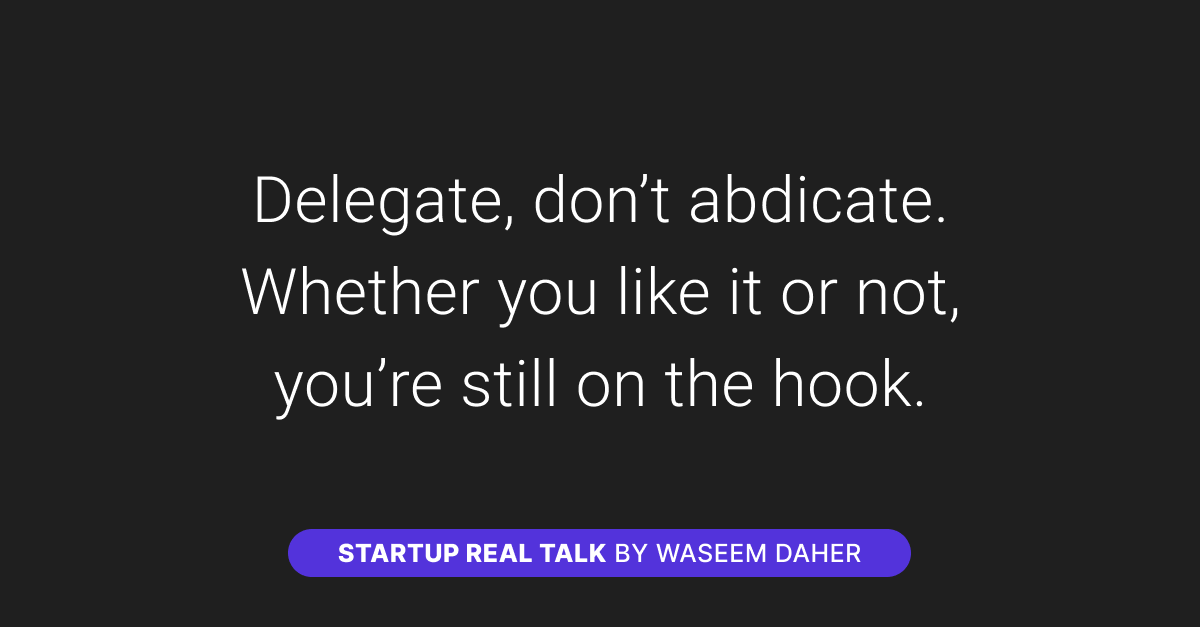Delegate, don’t abdicate
Empower your team, but don’t use that as an excuse to check out entirely
215 words • 1 min read
Ellison began to realize that not for the first time, in his eagerness to carve out just the portion of the CEO’s job that he enjoyed, he had delegated too much power and responsibility. It’s a characteristic of Ellison that when he thinks he has found someone who is competent and who can help him, he invests an excessive amount of faith in his or her ability.
— Softwar
Congratulations, you’ve hired someone new. Maybe it’s an exec—the right one, this time—or maybe it’s just anyone in a new role. Your natural temptation will be to hand them the keys and let them drive, freeing you up to shift your attention to another part of the business that needs it.
Why not, right? They’re super-smart and talented—that’s why you hired them in the first place—why shouldn’t you let them do their thing?
This instinct is partially good: you absolutely do want to give them ownership, agency, and the freedom to do what they need to do. If you don’t, you’ll suffocate them and they’ll leave—and you won’t actually get any leverage from the hire if you’re spending 100% of your time second-guessing their decisions.
But there’s a big difference between delegating responsibility and abdicating responsibility. Whether you like it or not, you’re still the CEO. You’re ultimately accountable for everything the business does—the good and the bad.
You should give your new hire space and freedom to operate, but you can’t abdicate responsibility. You have to stay close enough to the details to understand whether or not it’s working—and if it’s not working, you have to be willing and able to intervene.
And you can’t do that successfully if you haven’t been paying attention.

